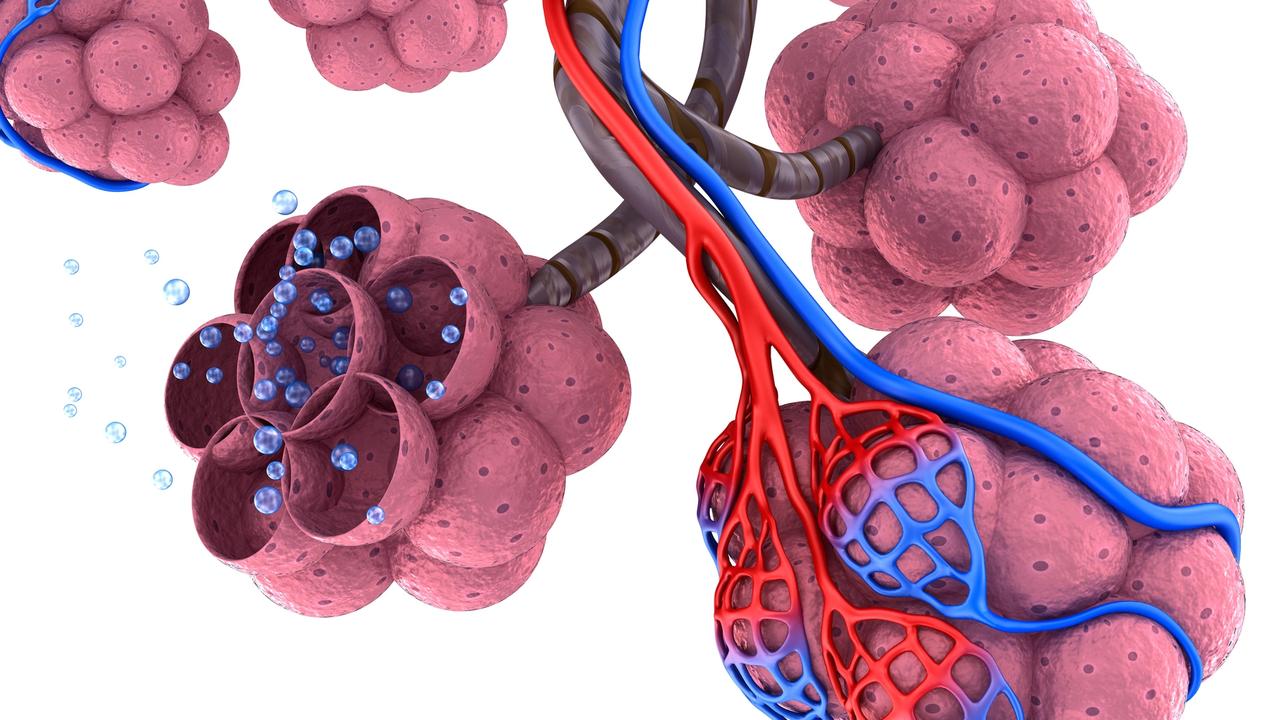Coronavirus symptoms: Why COVID-19 is fatal for some, mild for others
A single, simple way the virus acts could be the difference between a coronavirus patient having mild symptoms and pneumonia.
As we’ve all been told, in the vast majority of cases of people infected with COVID-19 the symptoms are classified as “mild”.
According to one study in Iceland, it’s possible that half all people with the disease might be completely unaware they’ve even had it.
At the other end of the spectrum, around 15 per cent of people confirmed to have coronavirus show more severe symptoms with a proportion of those requiring hospitalisation.
But what’s happening inside the body that can mean most people shake off the virus’ effects with barely a shiver or a sore throat whereas others succumb to it?
Age and underlying health conditions play a major factor. But looking to the UK, what is happening with the virus that 55-year-old Prime Minister Boris Johnson can end up in an intensive care unit, but 71-year-old Prince Charles can ride the infection out in a matter of days at home?
RELATED: Follow the latest coronavirus updates
RELATED: Do I have a cold, flu or coronavirus?
One of the reasons is how deeply the virus penetrates the body.
COVID-19 finds a way in generally through virus-laden droplets entering the nose or the mouth.
If the virus’ progress can be halted at the throat, the person will likely recover with few issues. These are often those mild cases.
If, however, the virus descends further than the windpipe, its journey to the lungs is suddenly much easier and that’s where it can really cause some damage.


The symptoms of COVID-19 infection often begin with a sore throat. That’s because the virus initially tries to attack the cells in the upper respiratory tract. Here it can start to multiply and begin harming you.
Because our immune systems haven’t dealt with COVID-19 before, it may take a while for it to even to recognise the virus as a threat. This can mean, in some people, several days of feeling very under the weather as coronavirus goes to town unimpeded.
Hopefully, however, once the immune system kicks in, it can kick out coronavirus and the symptoms can subside.
If it’s contained in the upper airway, it usually results in a less severe disease, US infectious diseases expert Jeffrey Taubenberger wrote in Fortune magazine.
As well as a sore throat, upper respiratory tract symptoms can include a fever, bunged-up nose and a dry cough.
PAST THE WINDPIPE
But if it manages to penetrate past the windpipe and into respiratory tree and lung tissue, the disease has entered a more concerning phase.
These symptoms can include chest pain, a more pronounced cough and a shortness of breath as it inflames the respiratory tree.
The virus can also invade the alveoli, air sacs that fill with air as you breathe and help to oxygenate the blood and remove carbon dioxide that you then exhale.
Impaired alveoli are less able to do their job, meaning there is less oxygen in the blood.
Pneumonia is then a risk. The alveoli can become inflamed and fill with fluid or pus and make breathing more and more difficult.
Those who die from COVID-19 infection often perish from severe pneumonia.
Extra oxygen and ventilators can take some of the pressure off a patient with pneumonia, giving them space to recover, but sometimes the damage is simply too extensive.
Nonetheless, in most cases of the virus descending to the lungs, the immune system can retaliate successfully.
“Your body is immediately trying to repair the damage in the lung as soon as it’s happening,” Mr Taubenberger said.
“Normally, if this goes well, you can clear up your infection in just a few days.”

IMMUNE SYSTEM GOES BAD
However, in some cases the immune system’s response can actually do more harm than good and help the virus’ journey deeper into the lungs by destroying healthy tissue. In turn, that can lead to a loss of mucus and tiny hairs that help repel contamination.
“You have no ability to keep stuff out of the lower respiratory tract,” Mr Taubenberger said referring to bacterial infections that can compound the damage caused by the virus.
Another danger is what is known as cytokine storm syndrome where the body’s immune system goes into overdrive, and in an effort to battle the virus can actually make the patient even more poorly and the prognosis bleaker. Younger, fitter people with more robust immune systems are actually more likely to suffer a cytokine storm episode than older or weakened patients whose immune systems are more compromised.
So, yes, older and vulnerable people are more susceptible overall. But it’s very possible that the virus inside Mr Johnson managed to dig deeper into his body, while Prince Charles’ immune system was able to halt its progress completely in the throat.
Researchers in London are trying to find out why the virus has such a varying effect on people.
As many as 1000 healthcare workers at the city’s St Bartholomew’s hospital who have come into contact with COVID-19 patients are having blood and swabs taken to see if they can provide any clues.
“The potential use of this research is to design personalised risk scores for people based on their prior viral exposures or genetics to detect the earliest changes of disease and to design pre and post-exposure prophylaxis,” Professor James Moon, a cardiologist at University College London, told the UK’s Channel 4 News.
The hope is to develop antibodies and judge the level of immunity to coronavirus and how long that immunity might last for.
It might also provide the answer as to why most of us can give coronavirus the flick while others succumb.
Originally published as Coronavirus symptoms: Why COVID-19 is fatal for some, mild for others




